
What is CB Certification Testing?
1. Introduction to Certification
The IECEE-CB system is a globally recognized system established by the International Electrotechnical Commission (IEC) for the safety testing and certification of electrical products. Its purpose is to reduce international trade barriers resulting from the need to meet various national certification or approval standards. The CB system recognizes test results for 19 categories of electrical products, including information technology equipment, household appliances, and medical electrical devices, based on IEC safety and electromagnetic compatibility (EMC) standards approved by IECEE.
The foundation of the CB system is to ensure that the safety test results of electronic and electrical equipment are globally accepted. Upon successful testing, a cb test certificate and corresponding CB test report are issued for the product. Together, these documents serve as a passport for manufacturers to apply for global certification from national certification bodies in any CB participating country or region, often without the need for additional testing.
2. Certification Mark
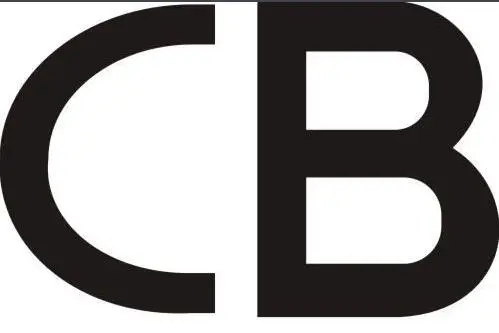
3. Product Scope
Currently, the CB system covers 14 major categories and 180 types of products, including video game devices, testing equipment, power cables, capacitors and components, lighting, household appliances, protective devices, transformers, office and IT equipment, AV equipment, and medical devices.
4. Certification Standards
Products and Safety Standards
- Power Supplies
- Information Technology (ITE) power: IEC 60950-1, IEC 62368-1
- Audio-Video (AV) power: IEC 60065, IEC 62368-1
- Lighting power: IEC 61347-1, IEC 61347-2-13
- Household appliance power: IEC 60335-1, IEC 60335-2-29
- Medical power: IEC 60601-1
- Industrial power (electronic transformers): IEC 61558-1, IEC 61558-2-16
- End Products
- Information Technology (ITE) products: IEC 60950-1, IEC 62368-1
- Audio-Video (AV) products: IEC 60065, IEC 62368-1
- Lighting products: IEC 60598-1, IEC 60598-2-XX
- Household products: IEC 60335-1, IEC 60335-2-XX
- Medical products: IEC 60601-1
- Industrial (transformer) products: IEC 61558-1, IEC 61558-2-XX
- Power tools: IEC 60745-1, IEC 60745-2-XX
- Batteries
- Consumer batteries: IEC 62133, IEC 60086, IEC 61960
- Power batteries: IEC 62660-1, IEC 62660-2, IEC 62660-3, IEC 62619, IEC 62620
- Electric Vehicles
- Electric bicycles and personal electric vehicles: IEC 15194, IEC 17128
Products and EMC Standards
- ITE/AV products: CISPR 32, CISPR 35, IEC 61000-3-2, IEC 61000-3-3
- Lighting products: CISPR 15, IEC 61547, IEC 61000-3-2, IEC 61000-3-3
- Household products: CISPR 14.1, CISPR 14.2, IEC 61000-3-2, IEC 61000-3-3
- Industrial, scientific, medical products: CISPR 11, IEC 61000-4 series basic standards, IEC 61000-3-2, IEC 61000-3-3
- Battery products: IEC 61000-6-1, IEC 61000-6-2, IEC 61000-6-3, IEC 61000-6-4
5. Testing Items
Tests include electrical strength testing, stability testing, insulation resistance testing, label durability testing, power cord pull testing, current limit testing (LCC), impact testing, temperature rise testing, normal/abnormal testing, among others. The specific tests may vary based on the actual samples and the applicable standards.
6. Required Documentation
1. Application form
2. Circuit diagrams, PCB layout
3. Nameplate
4. English manual
5. Key components list (CDF)
6. Trademark declaration (if applicable)
7. Transformer and inductor specifications
8. Model list (series)
9. Product photos
10. Compliance test reports
7. Certification Process
1. Application
(1) Confirm customer information;
(2) Complete the CB application form;
(3) Provide specifications and other documents.
2. Quotation
Determine testing time and costs based on provided information.
3. Payment
Upon confirmation of the quote, the applicant signs the application form and service agreement and pays the project fee.
4. Sample Submission
The customer sends samples.
5. Testing
The laboratory conducts cb certification tests according to relevant standards.
6. Report
Upon passing the tests, the CB report is completed.
7. Certification
The report is submitted to the certification body (NCB) for review and, upon approval, a CB certificate is issued.
8. Certification Cycle and Validity
The CB certification cycle takes 4-5 weeks. While there is no explicit validity period for CB certification, recognized NCBs generally raise concerns over CB certificates issued more than three years ago.
9. Factory Inspection
Factory inspections are not required for CB certification.
10. Important Considerations
1. When applying for a CB test certificate, note the following:
(1) The application can be submitted to any "certifying/accrediting" NCB that covers the product scope.
(2) The applicant can be either the manufacturer or an authorized entity representing the manufacturer.
(3) Applications may include one or more factories producing products in one or more countries.
(4) Applicants/manufacturers/factories located in countries without IECEE member institutions must pay an additional fee of 150 Swiss Francs for each CB test certificate to cover the operational costs of the system. This fee is collected by the NCB processing the application and deposited into the IECEE account.
(5) Applicants can request NCBs to test products based on country-specific differences.
2. Manufacturers seeking product certification for target markets must follow these procedures:
(1) Submit an application to the NCB of the target country;
(2) Provide the CB test certificate;
(3) Provide the CB test report (which may include country differences);
(4) Supply product samples if requested by the NCB of the target market. This is to verify that the product is consistent with the one initially tested by the issuing NCB and to cover country differences.
3. Country Differences
Country differences refer to variations between a country's standards or regulations and corresponding international standards. All country differences from CB system member countries are submitted to the IECEE secretariat and published in the CB Bulletin.
Email:hello@jjrlab.com
Write your message here and send it to us
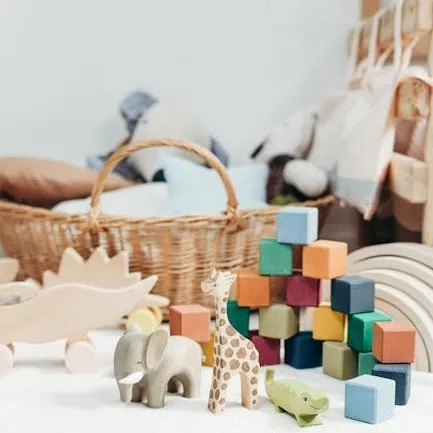 Toy Toxicology Testing CA
Toy Toxicology Testing CA
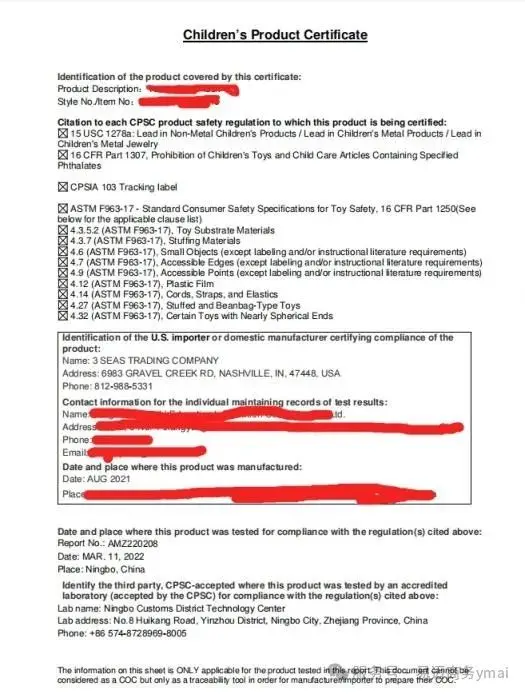 CPSIA Compliance for Children's Products
CPSIA Compliance for Children's Products
 Food Contact Items Testing
Food Contact Items Testing
 Energy Star Testing Laboratory
Energy Star Testing Laboratory
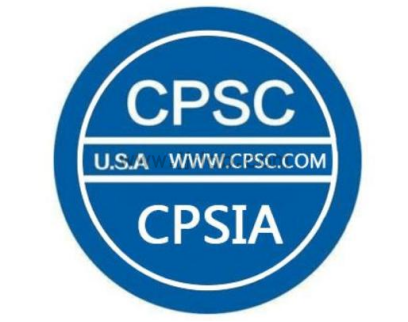 Do I Need to Test Every Color for CPSIA Compliance
Do I Need to Test Every Color for CPSIA Compliance
 Accredited Medical Device Testing Lab
Accredited Medical Device Testing Lab
 Safety Testing for Baby Wrap
Safety Testing for Baby Wrap
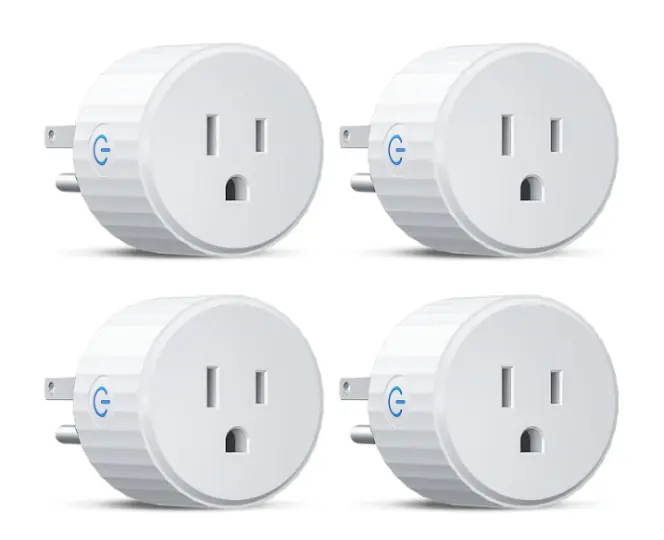 United States Electrical Plug Certification
United States Electrical Plug Certification
Leave us a message
24-hour online customer service at any time to respond, so that you worry!




